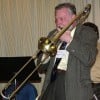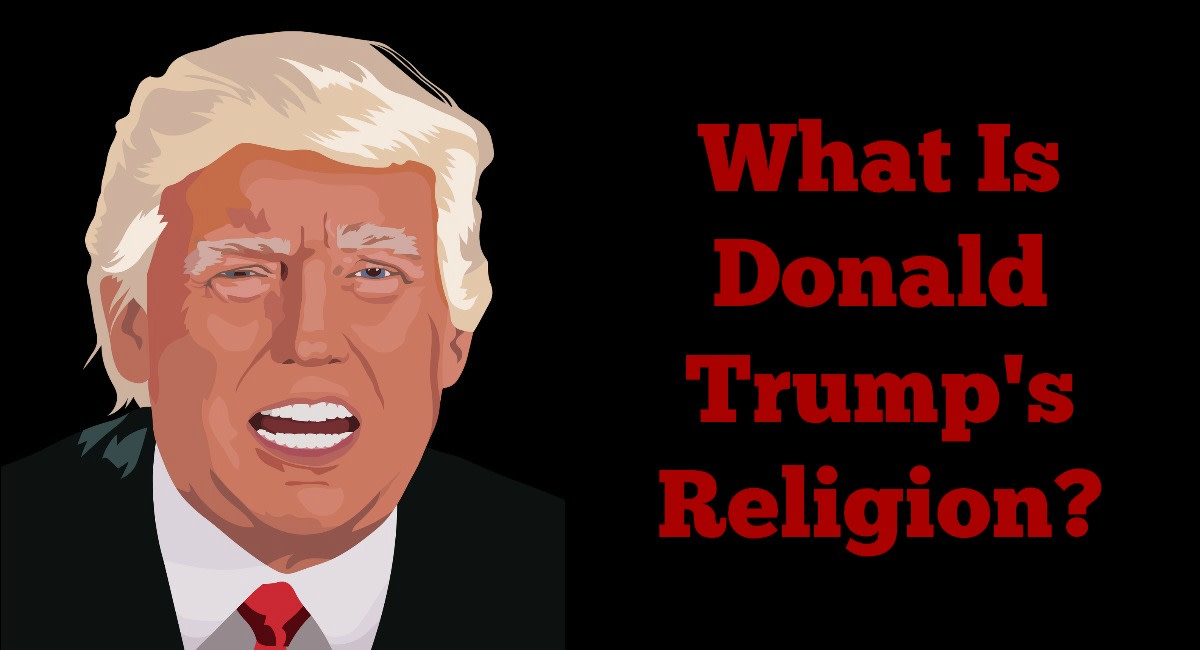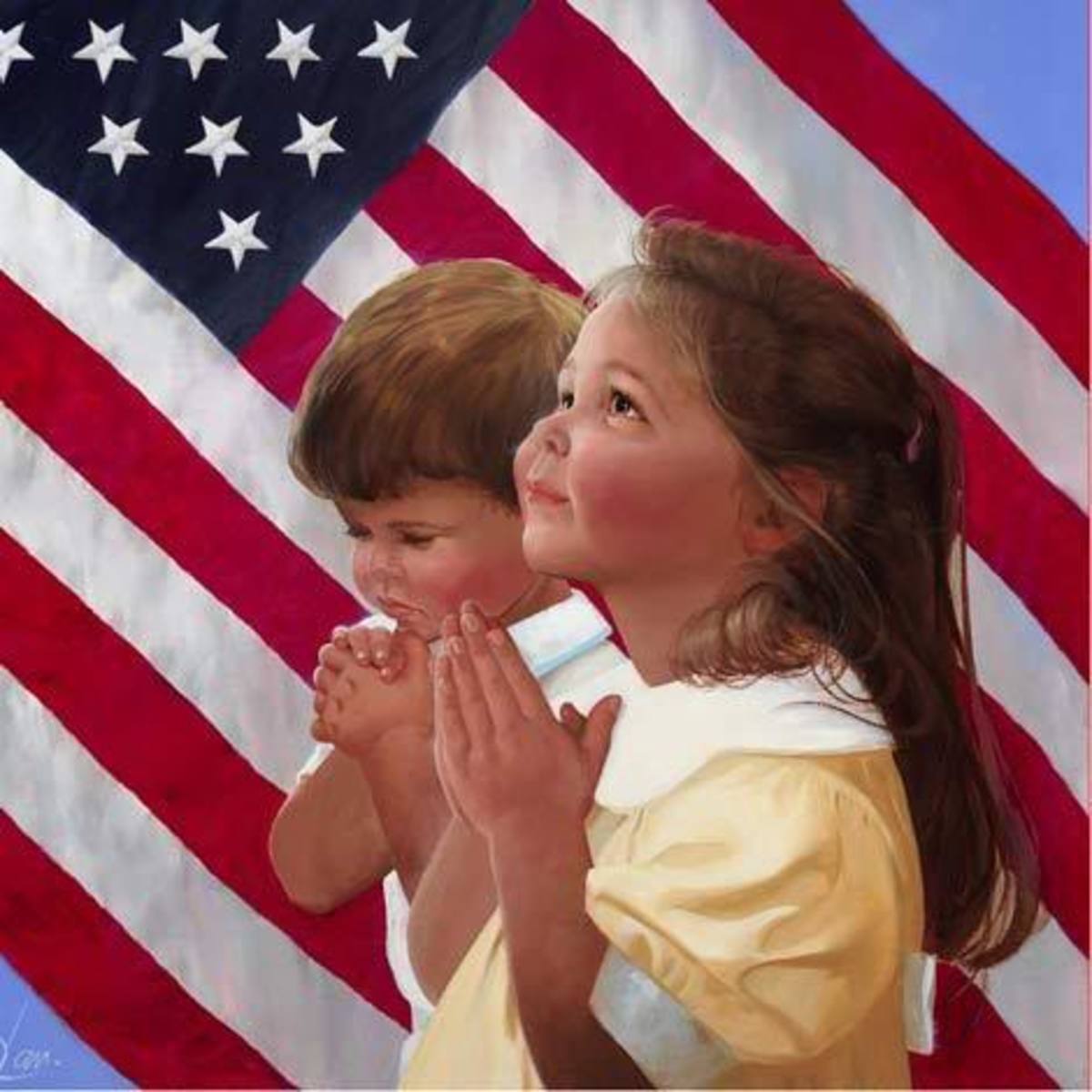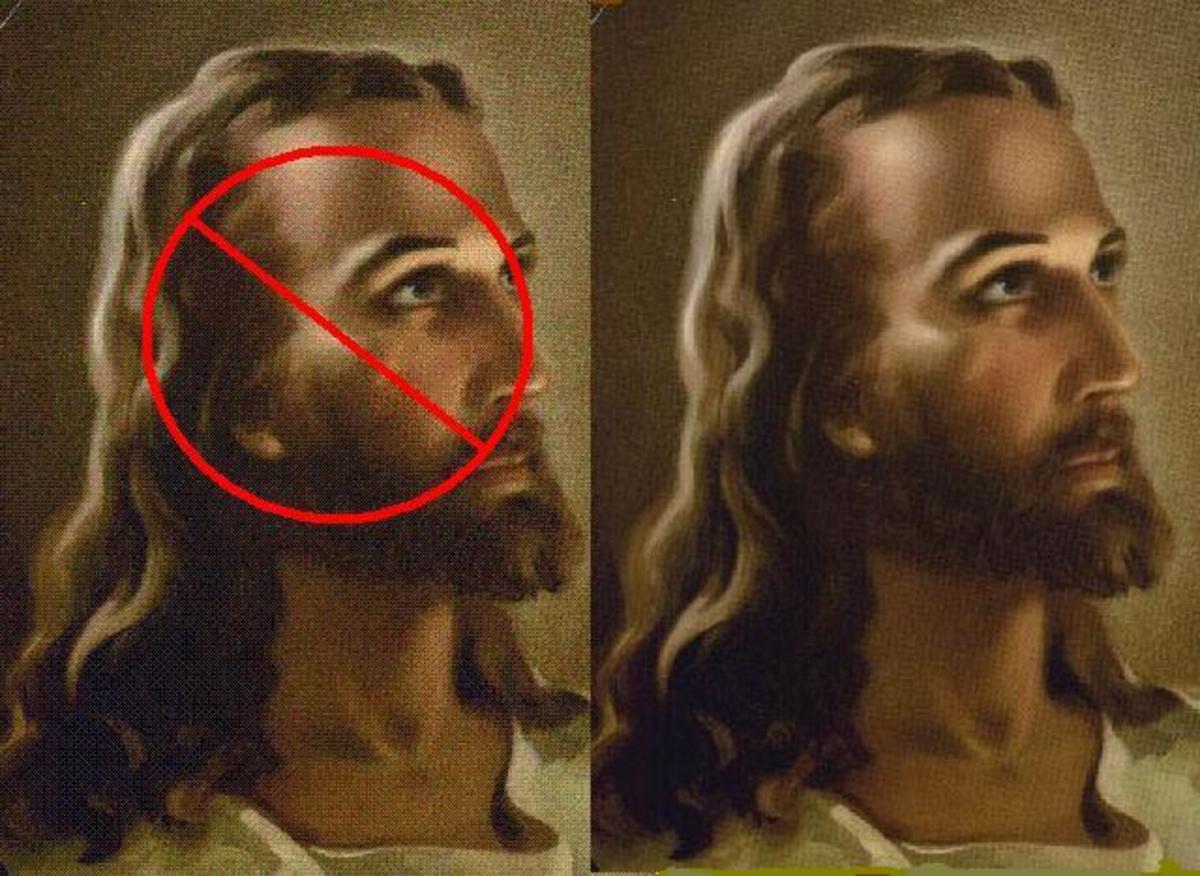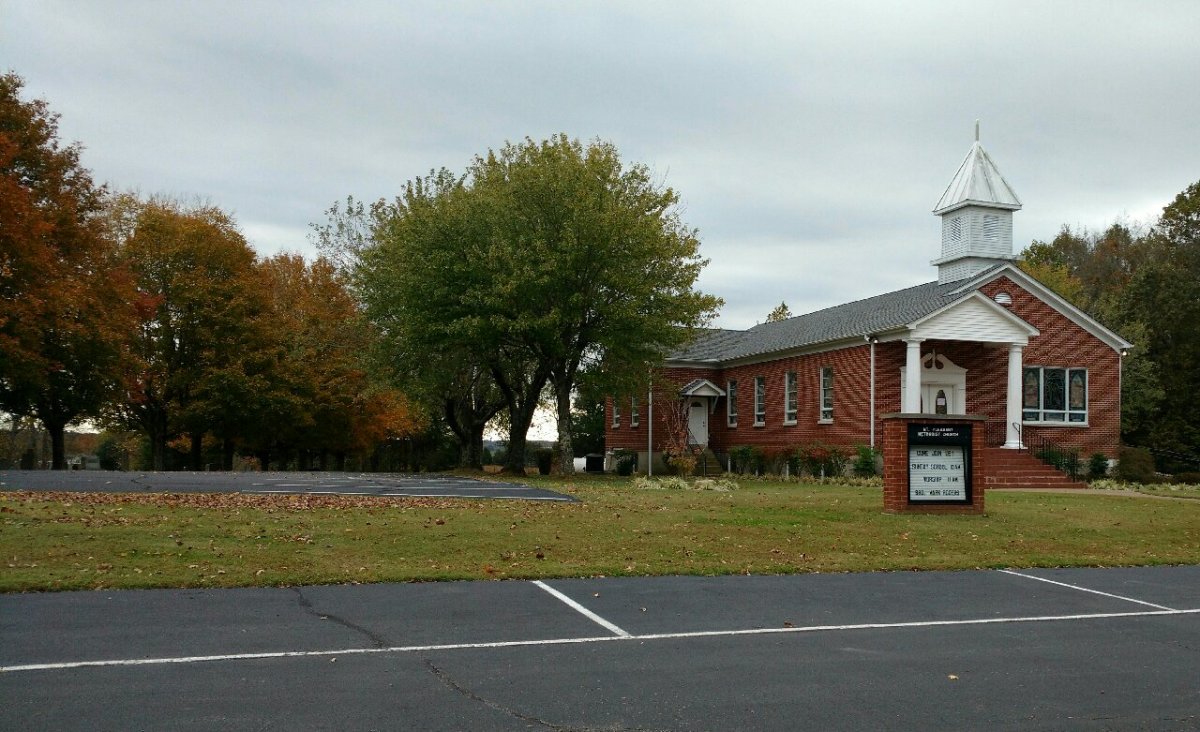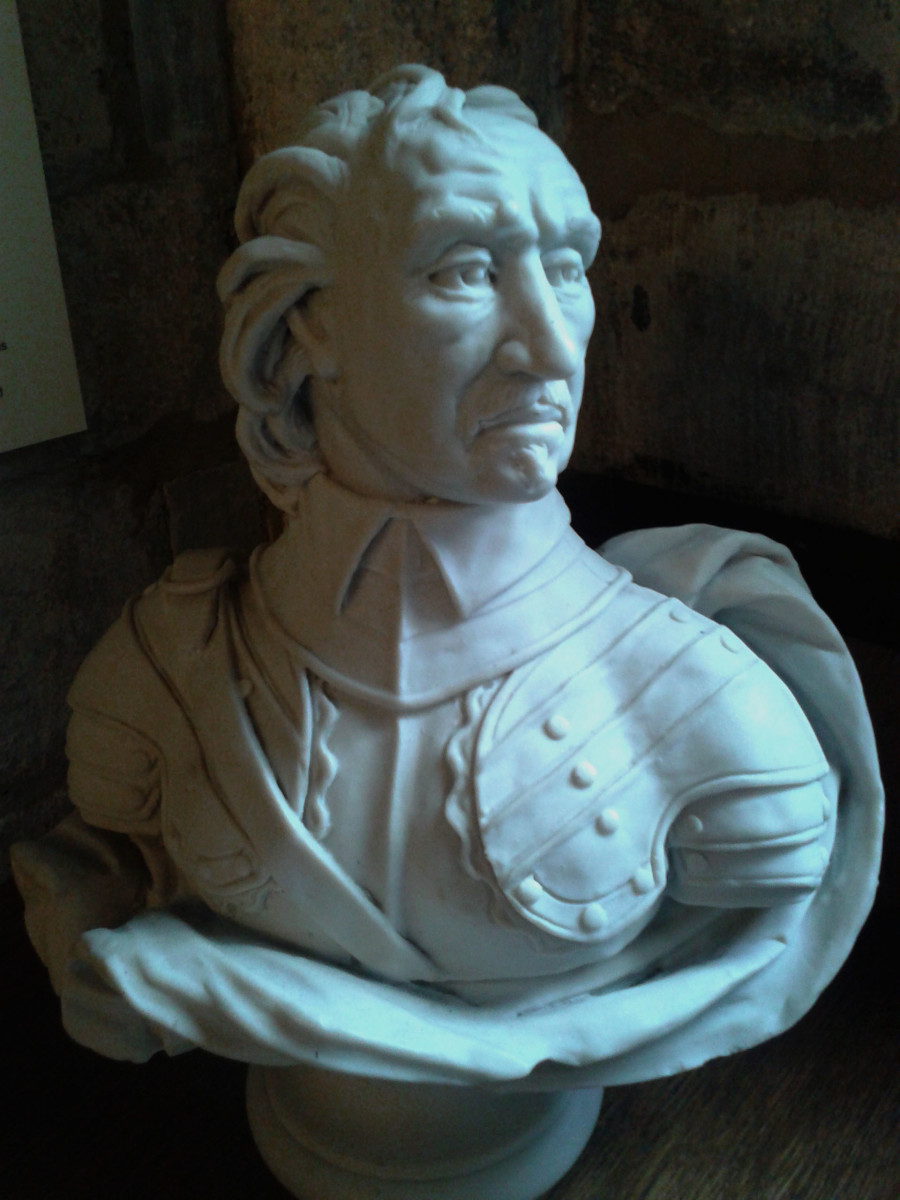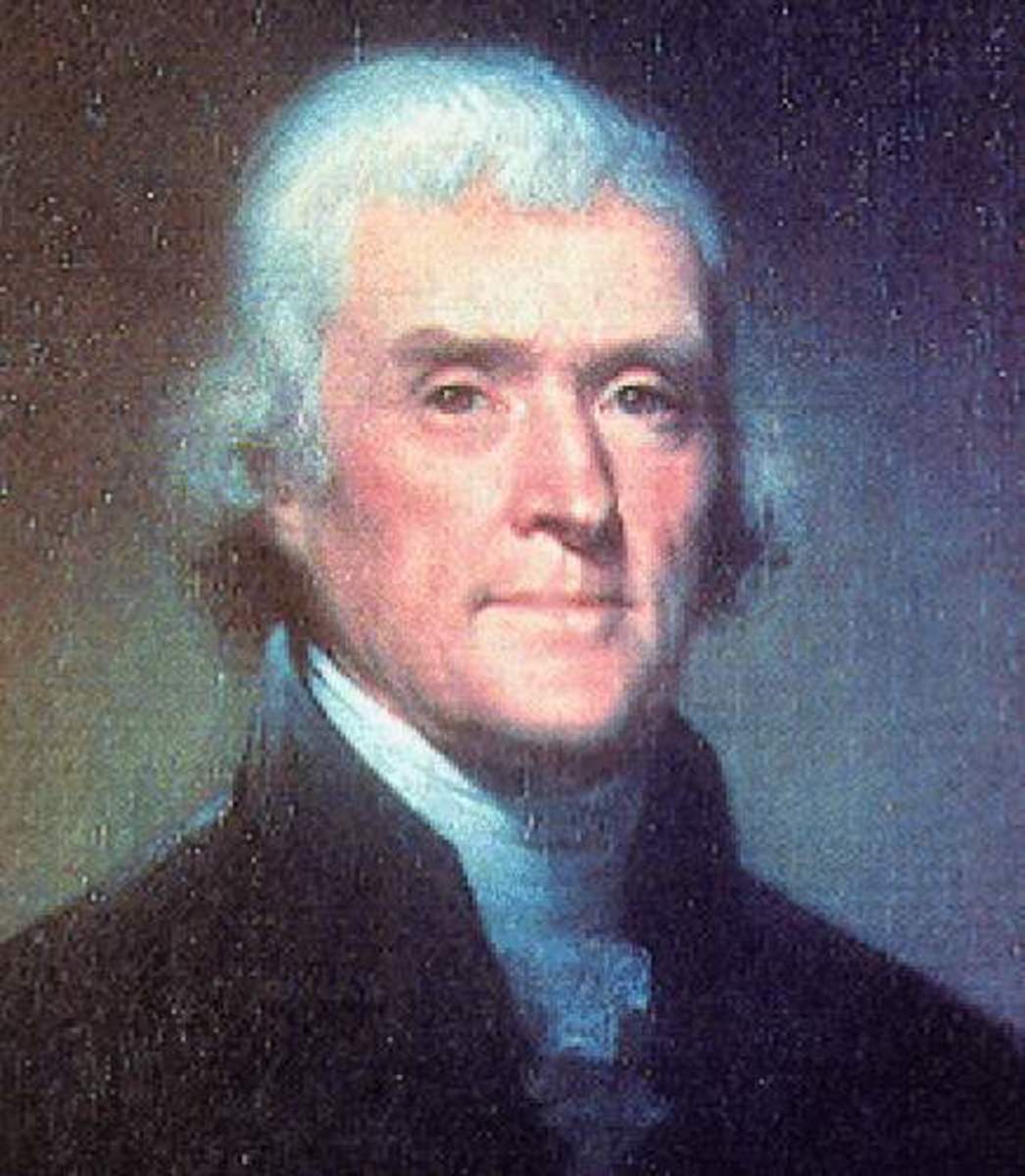The National Day of Prayer and other Presidential Proclamations
At the behest of the historically and constitutionally illiterate Freedom From Religion Foundation, the apparently historically and constitutionally illiterate US District Judge Barbara Crabb declared the National Day of Prayer unconstitutional.
She said that the government cannot enact laws to support a day of prayer any more than it can encourage citizens to practice magic, fast during Ramadan, or attend a synagogue.
Leaving aside the question of whether proclamation of the National Day of Prayer has ever excluded Jews, Moslems, or anyone else from praying on that day, the ruling shows a shocking ignorance of, well, too many things to list here.
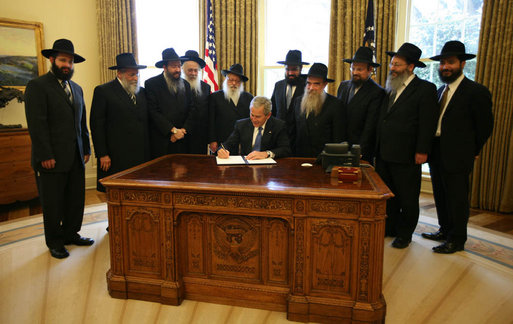
Officially Sanctioned National Observances
The National Day of Prayer is hardly unique. The Wikipedia's "List of observances in the United States by presidential proclamation" comprises 46 special days, 25 special weeks (some associated with special days), and 30 special months.
To be sure, none of them encourage citizens to practice magic, fast during Ramadan, or attend a synagogue. But they do all encourage Americans to do or to acknowledge the importance of something.
January 16 is Religious Freedom Day. I suppose the Freedom From Religion Foundation crowd can celebrate that as much as anyone else. But by their logic, shouldn't they object as much to a presidential proclamation of anything concerning religion? Where did they protest this one?
The President proclaims Education and Sharing Day some time in late March or April. I can't be more precise, because the exact date is based on the Hebrew lunar calendar. I can't imagine anyone objecting to education or sharing either separately or together, but it follows a Jewish religious calendar. Religious!! Does that make it unconstitutional?

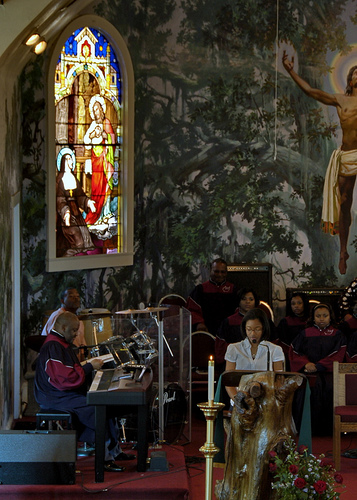
These are not the only national observances of some aspect of religion and/or prayer. As long as a group of outsiders is protesting being encouraged to acknowledge religion, couldn't men just as legitimately protest Women's Equality Day? Or white people protest Minority Enterprise Development Week or Black History Month?
If the National Day of Prayer unconstitutionally influences an individual's decision whether or when to pray, does the proclamation of Gay and Lesbian Pride Month unconstitutionally influence an individual's attitude toward homosexuality?
I find days, weeks, or months proclaimed to honor the heritage of Greeks, Armenians, Germans, Native Americans, Irish, Jews, Asians, Caribbean nations, Hispanics, and National American Indians. Do these observances exclude or violate the rights of anyone else?
The First Amendment
The national observances mentioned in the previous three paragraphs do not involve religion. Some may therefore protest that they have nothing to do with the constitutionality or unconstitutionality of the National Day of Prayer. What does the Constitution say?
The First Amendment begins, "Congress shall make no law respecting an establishment of religion, or prohibiting the free exercise thereof." The Freedom From Religion Foundation alleges that proclamation of the National Day of Prayer amounts to an establishment of religion and violates separation of church and state.
The establishment of religion specifically means supporting an officially recognized religious institution with tax money. Until the Fourteenth Amendment applied the Bill of Rights to state governments as well as the federal government, the First Amendment did not keep states from establishing a religion (that is, a denomination).
Several of them did well into the nineteenth century. In aggregate, they established several different religions and had done so since colonial times. It would have clearly been impossible to agree on establishing any one denomination at the federal level with more than one already established at the state level.
Is separation of church and state a constitutional principle at all? The
phrase first appeared in a private letter written by Thomas Jefferson.
Within the eighteenth understanding of "religion" having to do with a
particular denomination, the First Amendment did indeed erect separation
between between the institution of the government at the federal level
and the institution of any particular church denomination.
Separation
of church and state does not equal separation of religion and state by
any other meaning of "religion." In establishing the National Day of
Prayer, Congress did not establish either a church or religion in
general. It did not force anyone to be religious any more than it forced
anyone to be homosexual in establishing Gay and Lesbian Pride Month.
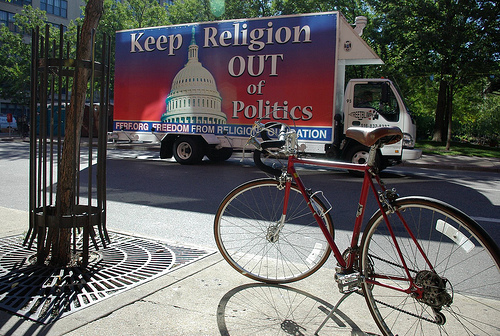
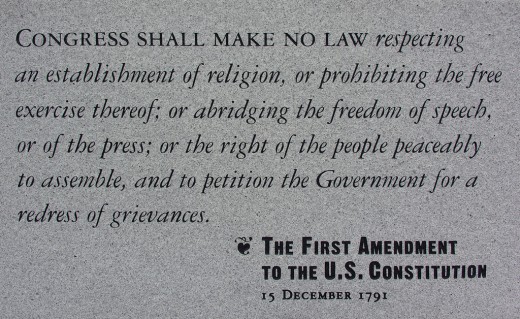
In
fact, the very idea that freedom OF religion really means freedom FROM
religion risks running afoul of the free exercise clause of the First
Amendment. After all, the free exercise of any religion must include the
right to practice that religion and advocate it publicly.
Remember
the year when both Pat Robertson and Jesse Jackson ran for President?
The "freedom from religion" crowd was up in arms about the possibility
of having a preacher in the White House. I thought it would be fun to
see the look on their faces if both preachers won their parties'
nominations.
Not only does the First Amendment guarantee
presidential candidates the right to advocate for their religion views,
but Article VI Section 3 of the Constitution explicitly forbids
religious tests as a qualification for office. The constitution forbade
requiring an office-seeker to be a member of the Church of America even
before it forbade the establishment of such a church.
By what
principle, then did the "freedom from religion" crowd suggest that it
somehow forbade Robertson and Jackson from running for President?
Probably the same backside-to-reason thinking that Crabb used to decide
that members of Congress and Presidents cannot exercise their own
freedom of religion by declaring that prayer is worthy of honor with a
national observance.
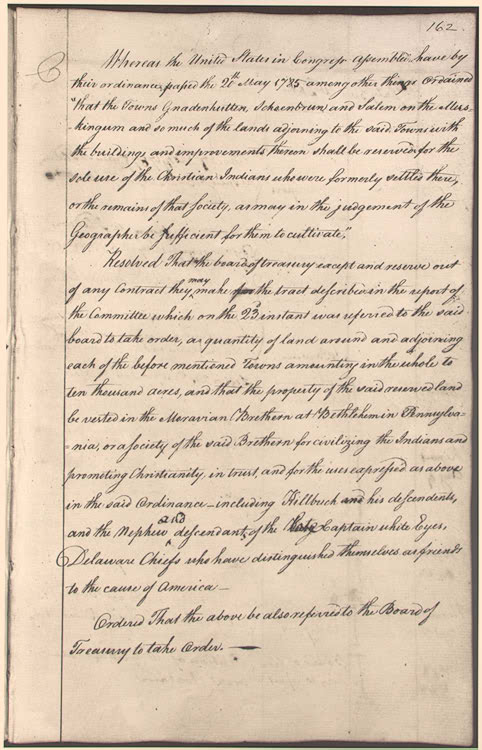
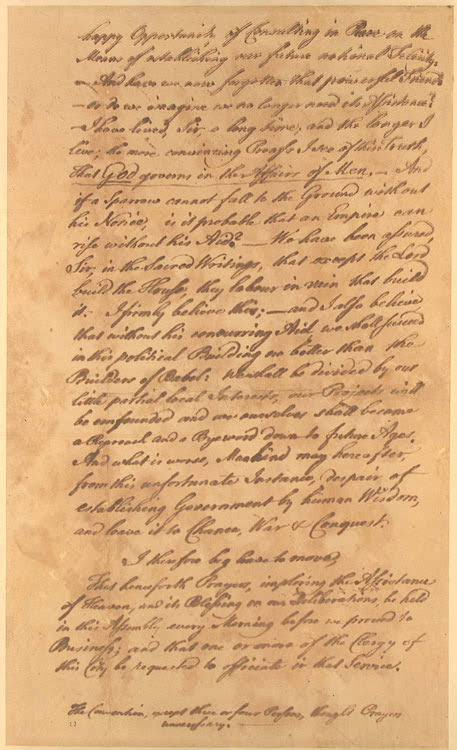
The Founding Fathers
I don't want to argue for "original intent" of the Constitution here. I don't even agree with all of the reasons used to support such an argument. But surely the Constitution means what it says and not something else. I also believe that what the people who wrote it did and said in various speeches and writings are very helpful in properly interpreting the meaning of the wording of the Constitution.
According to a Library of Congress exhibit on "Religion and the Founding of the American Republic," the Continental-Confederation Congress, which governed from the Declaration of Independence until the enactment of the Constitution, invested tremendous energy in encouraging the practice of a nondenominational Christianity. Among other things, they proclaimed national days of "humiliation, fasting, and prayer" at least two times per year during the war.
In his Farewell Address (par. 27), George Washington explicitly denied that "national morality can prevail in exclusion of religious principle. He was not one of the more religious of his time. In so saying, he merely expressed the same views found in many other contemporary documents.
Jefferson's famous recommendation of a "wall of separation between church and state" did not prevent him from attending the non-denominational church services held every Sunday in the House of Representatives. In fact, according to the Library of Congress, that chamber continued to host worship services until after the Civil War.
He found these services acceptable because they were nonsectarian and voluntary. Actually, though, they were exclusively Protestant during his lifetime. The first Catholic priest did not officiate in the House until 1826.
James Madison, who wrote the First Amendment and was more than anyone else responsible for the shape and content of the Constitution, found his plan to divide the central government into three branches in Isaiah 33:22: "For the Lord is our judge [judiciary], the Lord is our lawgiver [Congress], the Lord is our king [President]; He will save us."
As President, he signed "An Act for the relief of the Bible Society of Philadelphia." Apparently he did not interpret the constitutional ban on establishment of a national church to forbid giving federal funds to aid mass distribution of the Bible. He, too, regularly attended church at the Capitol.

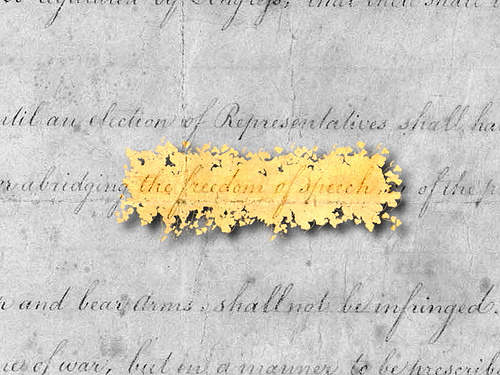
The Danger of Judge Crabb's Ruling
The petition by the Freedom From Religion Foundation has no legal or historical merit whatsoever. That they could find a judge to uphold it is truly scary. We live in a day where our universities spend more energy teaching students what to think than how to think. And what they have taught students to think in recent years amply demonstrates their contempt for the foundational principles of American society.
The Texas State Board of Educationsuggested that the public school curriculum ought to include understanding of the original founding principles of the United States (including the religious views and activities of its leaders). The mass media reacted by printing horror stories of a right-wing takeover of education. Academics signed protest petitions that show no familiarity with the Board's actual proposals.
Why is a "right-wing takeover" any worse than the left-wing takeover that has taken place over the last forty years or so? Many of the Founding Fathers were evangelical Christians and the rest were deeply religious. That was common knowledge fifty years ago, but it has since disappeared from public discourse.
In its place, we have agnostic groups taking specious arguments to the courts. (Remember that "agnostic" is the Greek equivalent of the Latin "ignoramus." It is a totally pseudo-intellectual position that dares to paint religious people as anti-intellectual.) Now they have found a judge with an intellectual capacity no higher than theirs.
If these people, with their open contempt for easily verifiable facts, prevail at higher levels of the judiciary, it will endanger not only freedom of religion, but simple intellectual honesty.
+++++++++++++++++++++++++++++++++++++++++++++++++++++++++++++++
Pat Robertson on the Haitian Earthquake: Truth, Error, and Distortion. Even when a Christian leader makes a misstep, people are likely to jump him for all the wrong reasons, in ignorance or willful distortion of the context of his remarks.
Why are the stars falling? A look at recent celebrity scandals. Not all fallen stars profess Christianity, but many do. They succumb to a pervasive moral relativism and sense of entitlement that speaks throughout society more insistently than Christianity does. "Religion," in terms of its moral imperatives, ought to have greater influence on public figures, not less, even if they are elected to high office.
Hezekiah Prepares for Worship. Hezekiah, one of the godliest kings in the Bible, followed one of the ungodliest. His reformations reinstated proper worship, but they were too late. His father's idolatry and cowardice had reduced a once-powerful nation to the status of vassal of the brutal Assyrian empire.See also my blogpost Dealing with bad news the right way.
